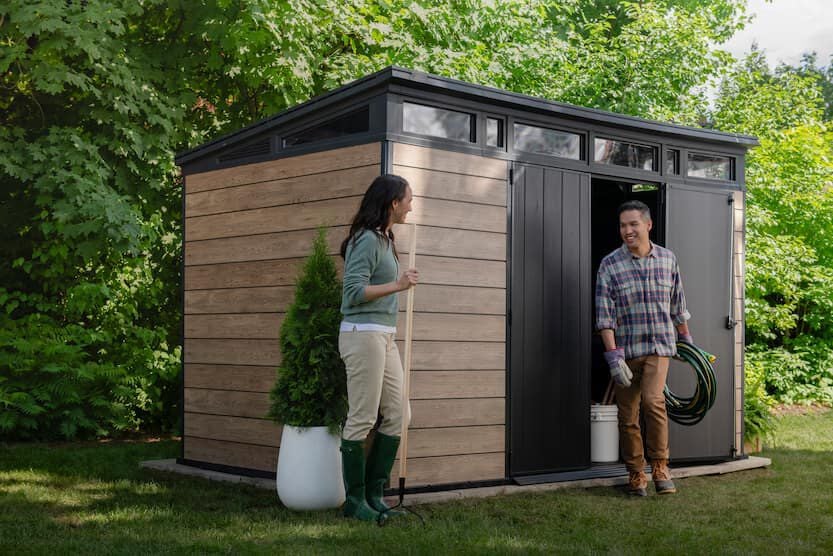
How to Close Your Vacation Home for the Winter
Are you closing your summer vacation home for the winter?
If so, there’s a lot to do, and this task can become very overwhelming. It can be challenging to know where to start. However, winterization is key in certain regions, especially Maine, New Hampshire, Michigan, Idaho, and Montana. So, this isn’t something that can be skipped.
In this blog, we will discuss how to winterize your vacation home so that there will be fewer issues when you reopen it in the Spring or Summer. Let’s jump right in!
Cleaning and Decluttering: Summer Home Maintenance Checklist
The first thing you’ll want to do is take a look around your house. What needs to be decluttered and cleaned? A good place to start is your kitchen. We’re looking at your fridge and pantry!
Fridge Cleaning
You’ll want to start with your fridge to ensure that any items that will go bad or attract pests have been thrown away. No one likes to return to a vacation home to be met with rotting food. The things kept in the fridge can get smelly when spoiled. So, when in doubt, throw it out.
Pantry Cleaning
Next, you’ll want to look at your pantry. This might be more difficult since pantry items usually have a decent shelf life. Anything that will spoil or spill needs to go immediately. If things are close to expiration, it’s better to take them home and use them up. You also might want to consider putting anything left over in food containers. These airtight containers can deter pests, minimize spills, and keep food fresher while you’re away.
Deep Clean Your House
One of the most important parts of the closing process is deep cleaning your house. Make sure everything is dusted, scrubbed, and neatly put away. Vacuuming and mopping are great ideas, too. Also, consider getting rid of items you don’t use or need.
Make a Maintenance Checklist
Lastly, you’ll want to make a home maintenance checklist of everything you might need to do when you reopen the house. You’ll also want to make a list of everything you’ll need. This means food, cleaning supplies, linens, etc. Making a list can also give you an added advantage because you can shop for the non-perishable items on sale and collect them over the months before you reopen your house.
Inspect the Home for Maintenance Issues
Next, you’ll want to inspect for maintenance issues. This means walking around the inside and outside of your home. Scrutinize everything so you don’t miss anything. Look for cracks, holes, leaks, or any sign that something is amiss. If you find an issue, it’s best to address it immediately so it doesn’t become an emergency during the winter months when people seldom visit.
It’s also a good idea to examine the items in your home for wear and tear. Look at linens, furniture, dinnerware, and even appliances. If anything is broken or very worn out, now would be a great time to replace it.
Having things repaired or replaced that could cause problems in the winter is a super important part of this process. Things like holes, for example, in or around your house could allow vermin to enter. So, it’s best not to wait until next year to make repairs.
Using a Deck Box for Storage

Another thing to consider as you walk around the outside of your property is what needs to be stored. Things like patio furniture cushions, gardening tools, and outdoor toys should not be left out in the elements. That’s where a deck box can be a big help.
A deck box is the perfect place to store items like this, but do not just get any deck box. Keter’s deck boxes are made from durable, weather-resistant resin. They will not rot, rust, or peel, and they require little to no maintenance. This is especially important if your summer home has to withstand the elements during the fall and winter months.
Once you have your deck box, you’ll want to put it on a deck or porch close to the house. This will keep your items more easily accessible come opening season. Keter deck boxes also include a place for a lock and are ventilated. So you can ensure your items are packed safely away until you need them again.
Using a Storage Shed for Storage of Larger Items

As you’re doing an inventory and decluttering your house, you might notice more oversized items you’d like to move out of the house for the season. As you see these bigger items, do not simply put them in a garage or leave them in the house to handle next year. Get a storage shed to store more oversized summer home items.
Like the deck box, you might wonder what type of shed works best for your vacation home. We’d recommend a Keter storage shed. Like the deck boxes, Keter sheds are made from durable, weather-resistant resin. They will withstand harsh weather conditions and keep all of your stored items safe and sound until you need them.
If you’re wondering what sorts of items might be good to put in your shed, consider things like:
- Lawnmowers
- Seasonal decor
- Large outdoor items that are too big for the deck box (furniture, umbrellas, etc.)
Once you have your items stored safely inside the Keter storage shed, you can secure it. Keter sheds come with a place to put a padlock, so you can rest assured that your items will stay secure until you return.
Winterizing Utilities and Appliances
Winterizing your utilities and appliances is a very important step in your summer home winterization process. Not doing this can cause massive, costly problems like broken pipes. You might be wondering, though, how to winterize a house. Make sure you do the following before leaving your vacation home for an extended time:
- Shut off all the water in the house. This can help to prevent freezing and bursts in your pipes.
- Ensure you also drain your plumbing system and winterize to avoid water damage.
- Set your thermostats to maintain a safe temperature in your home that prevents freezing and conserves energy.
- Unplug unused appliances. This might sound silly, but make sure anything unnecessary electronic is unplugged. This can reduce the risk of fire and even lower your energy bill a bit.
If you’re unsure about any of these steps, hiring a professional to help you or show you how might be worthwhile. Do not skip these steps, though. Ensuring appliances are correctly winterized makes you much less likely to reopen your home next year and find costly problems awaiting you.
Securing Vacant Property
It might go without saying, but securing vacant property is essential. You want to make sure everything in your home is double and triple-checked before you leave for long periods of time.
- First, ensure your door locks are all in good working order and properly maintained.
- You’ll also want to make sure every window and door has been locked and checked. This will ensure no one can easily access your home while you’re away.
- If you have cameras on your property, make sure the batteries are all charged and ready to go. You might also consider getting cameras operated or backed up with solar power. That way, you don’t need to run up to the house every time a camera battery runs out.
- Make sure any other locks besides the ones in your home (such as ones on a fence) are in place and ready.
Ensuring everything is locked down and secure in your summer home will make a less stressful experiment for you during the winter months.
Final Walkthrough
As you prepare to lock up your home for the season, make sure you do a final walkthrough. Double-check everything we’ve talked about, including doors, windows, electronics, plumbing, and anything else that might need attention. While hopefully nothing occurs during the sleepy winter months, it’s essential to be prepared. So, ensure you’ve left an emergency contact list with your property manager or neighbor. That way, if something needs urgent attention, they can get a hold of you immediately.
If possible, you might also want to consider periodic visits to your vacation property. This will allow you to check on everything and make sure nothing needs immediate attention.
Closing your vacation home for the winter needs to be made a priority. Maintaining, using proper storage solutions, winterizing, and locking everything up for the winter is a must if you want to avoid issues come summer. So, make sure as you close your property down, you’ve double-and triple-checked everything to ensure a more fun and smooth spring/summer opening.
If you need more storage solutions as you winterize, be sure to check out all of the options Keter offers. Our products are easy to assemble, made from durable resin, and weather-resistant.

We build in a sustainable manner.
We use innovative materials and leading technologies to build planet-friendly products that last a lifetime.























